It's vital that we support each other if we want to continue to grow the indie community. In today's encore post, Barb Drozdowich says indie authors need to be more tolerant of each others' strengths and weaknesses, especially with regard to technical skills. From the perspective of a technical trainer, she explains how it's too easy for those with strong IT skills to inadvertently bully, belittle and upset those who struggle, and reminds us of the need to be more sensitive, especially when responding to comments on social media.
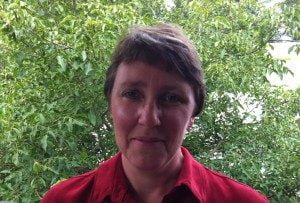
Technical trainer Barb Drozdowich cautions against inadvertent bullying of the less technically-minded indie author
In my experience, authors are really creative people. They create imaginary worlds and characters that I certainly enjoy reading about, but can’t fathom coming up with myself.
You see, I’m the technical trainer in the crowd. I’m the one who managed to get through a Masters’ degree thanks to my mother (the English teacher). She spent a lot of time encouraging me to “add more words” to the papers and projects required for my degree. Apparently, four years of creating concise lab reports while studying science didn’t prepare me for other forms of writing!
We all have strengths that we bring to the table.
I suppose the flip side of the previous sentence is that we all have weakness that we bring to the table.

Creative people's brains work in a different way to technical people's
Creative vs Technical Mindsets
Let’s go back to the first sentence of this post – “In my experience, authors are really creative people.” Science tells us that creative folk don’t use their brain in the same way that technical folk do. Just as some folks are right handed vs being left handed, some folks are better with creative information than others. That doesn’t mean creative folk can’t figure out how to post to a website, but it doesn’t come as easily as it does to someone like me, who is primarily technical.
Digital Natives vs Non-natives
Let’s add another layer to this discussion. At my age (55), I was lucky to grow up with a computer in the house. My dad was a programmer and was one of the early adopters of technology in the neighbourhood. Many of my peers were lucky to have any exposure to computers in any meaningful way by the time they left high school. I certainly didn’t use computers while in high school. In fact, in my first job at The Hospital for Sick Children in Toronto in 1986, I had access to early forms of the internet. I couldn’t access it at home until well into the 90s.
Many younger writers had ever-increasing access to computers and computer technology during their years of schooling. Moving forward to more recent times, my daughter, who is now 15, does all her school work online in Google classroom environments. In fact many school districts are moving to require (or supply) middle school kids with computers. The learning environment today is much different than what I was exposed to.
These are all facts and I’m sure you are wondering why I’m even pointing this out.
Many folks who were not taught using technology, struggle to add another layer of information to their already full brain. For adults to admit to not understanding a topic, requires guts.
In my experience, pretty much everyone is capable of learning how to manage a website, manage social media accounts, manipulate email and newsletters as well as all the other technical tasks that are required of an author in 2019. They just need to be taught correctly and given the opportunity to practise.
Telling a creative person that something is “easy” doesn’t make it so in their minds.
Be Sensitive to Others' Backgrounds
Several years ago at a writing conference, a presenter asked the primarily grey-haired female audience “Who has a website?” Two hands were raised – mine and another lady's. The presenter waggled a finger at us, looked down and shuffled his papers while saying “Tut, tut ladies. Easy, easy. Five minutes. Go to WordPress. Click, click, click and you have a website. No excuse.”
Since he wasn’t looking at his audience, he didn’t realize that most looked ready to cry.
I teach WordPress, and even I wouldn’t think of telling an audience of grey-haired ladies that setting up and managing a website is easy without any training. It certainly isn’t a five-minute job to create an author website! For that audience, who likely grew up in my era and before, and since they are at a writer’s conference are creative types, that type of comment from an authority figure is completely unkind.
Let's Change Our Vocabulary for the Better
Let’s talk about the words that we use. “Easy…simple….nothing to it….” Do we really want to be using these words?
- By using the word “easy” are you shaming someone who doesn’t take to technology as well as you?
- By using the word “simple” are you in fact bullying a fellow writer?
The example above from the conference is an obvious error on the part of the presenter. Wander through some author Facebook groups and you’ll see similar things.
We type responses to questions without thinking. We type without considering the audience.
I can teach anyone to use WordPress, but I don’t think I could create believable dialogue to save my life.
I have a Masters’ degree in Education but I consider my favorite authors to be way smarter than I am with the stories they create.
In my interactions with authors I try to be kind and considerate of their level of understanding.
I like the words “Learnable” and “Straight-forward” rather than “simple” or “easy.”
So think about your language the next time you are talking to a fellow writer. Don’t be the un-intentioned bully in the group.
#Indieauthors - worried your tech skills aren't up to scratch? Technical trainer Barb Drozdowich @sugarbeatbc says why we need to be more respectful of each others' strengths & weaknesses. #selfpub Share on XOTHER POSTS ABOUT THE INDIE AUTHOR COMMUNITY
From the ALLI Author Advice Center Archive

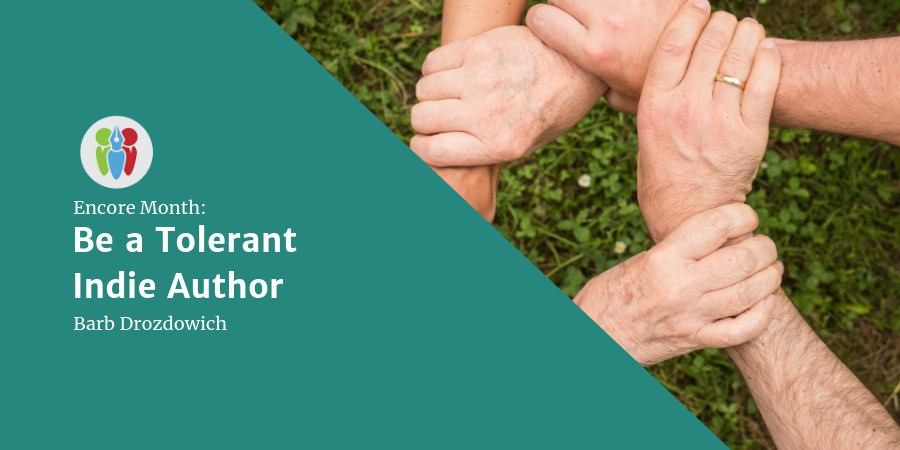

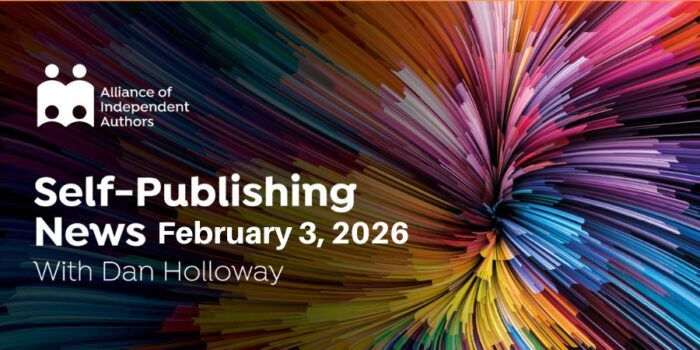
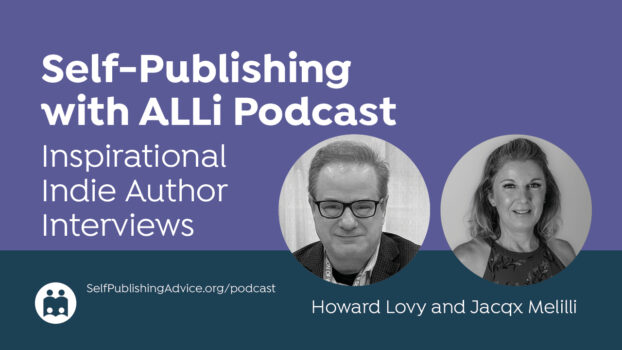
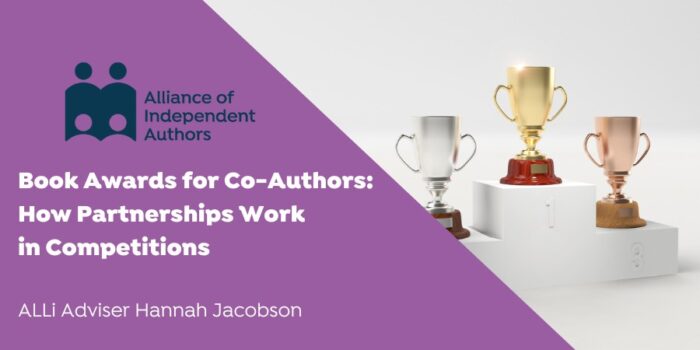
Ms Drozdowich as a teacher you know that research has shown students who write down notes during lectures have better memory retention than those who load it onto their tablet computer and this is proven at the hopeless dearth of a depth of knowledge by current experts in the social sciences. I am a retired sociologist – non practicing! As for the techno dazzle that is so overrated. Some types are now so much into this as social scientists were into psycho-babble. However when talking to -adults- if as you suggest these adults fold- collapse mentally- because they cannot -bear- words such as you suggested then i truly think these people are damaged mentally. Anyway most social media is stuffed full of the most shallow opinionated non entities so much so that I left this digital detritus to their own devices.
I’ll add my objection to some of the assertions made… I consider myself a fairly creative person. I’m also 72 years old and hopefully demonstrate that age and technical skills do not necessarily correlate. (Let’s include age discrimination while we’re being more “sensitive .”) I’m also proudly a life-long learner and work at being a “whole-brained” person. (There’s science about the duality of the brain demonstrating one isn’t either creative or technical. It’s not a zero-sum game. We may have different preferences but we can do both.) I also teach and do understand that one of the hardest lessons to teach is that students are most often capable of more than they think they are.
I also think I’m a fairly sensitive person but will admit that I lack patience with people who want everything to be effortless. One of the general trends I’ve noticed with Facebook Groups (and in general) is a tendency to skip the research and just post the question. When I see questions on social media like “Does anybody know what time such and such a store closes?” I’m tempted to reply, “Yes, the store does. Call them or look for their website.” Is that bullying or being insensitive? Or is it confronting mental laziness?
Sensitivity is a two-way street that includes a need for resiliency. A successful author/mentor fifty years ago explained his process when people contacted him for help. He’d give them a simple assignment and tell them to call (email hadn’t been invented) him when they were finished. He explained that he never heard from nine out of ten again… but the one he did hear from got plenty of help. When I realized he was actually mentoring me (still is, occasionally!) it also dawned on me that’s exactly what he did to qualify me as a deserving learner.
And, by the way, creating an author website can be fairly simple and easy if you hire the right somebody to do it.
I, too, come with the burden/legacy of an IT background — in the age of Big Iron, steam-powered mainframes (my first job pre-coding was as a field rep. for a computer that now sits in the Smithsonian…). Out of coding boredom, I escaped to the tech. communication side of things where I told people how things worked. Since I found I was always dealing with new things like solid-state flip-flops replacing the vacuum tube. The biggest upset was IBM’s hallowed and damned 360 architecture (that’s just one of many reasons my old friend sits in the Smithsonian).
The point is, even grizzled veterans have their moments of queasiness. Those moments are when someone jacks up the hood ornament and drives a whole new vehicle underneath it. Those veterans should harken back to the last time it happened to them before they get too down-the-nose with “lesser” levels of comprehension. In the tech. communication area, I tried to remember that and always assumed the lowest common denominator of comprehension when creating the missives I was responsible for — and oh yes, my own experienced overseers sometimes took me to task for my K.I.S.S. (…simple and straightforward) way of writing and illustrating things.
I remembered that newness brings with it at times, and tried to keep things at an appropriate level. And I never met anyone who said that I was “talking down” to them by oversimplifying. I may have overused analogies, examples, and illustrations but the only ones who complained were the people in the graphic arts dept. — when we had such a thing!
I’m with Kev on some of the assertions made here. This sentence, for example, is almost certainly nonsense: “Science tells us that creative folk don’t use their brain in the same way that technical folk do.” Science doesn’t know enough about the brain to make such broad statements. I object to this kind of loose pseudo-scientific explanation because it gives people a license to stop broadening their scope. As Kev points out, programming is creative work; besides, you don’t have to know how to write code to use the internet effectively. At the end, you do come around to saying it has nothing to do with how anyone’s brain works. That would be a good thing to start with.
I agree that people with technical skills should be patient with people seeking help who don’t have those skills. The presenter in your example was very rude, though they probably thought they were being encouraging. Surely some of those “grey-haired ladies” (an egregious stereotype) had the strength to comment on that unhelpful response later. It is hard to learn new things and feeling like everybody else is whizzing past you doesn’t make it any easier. Nobody likes to be told that the thing they’re struggling with is nothing, whether the teller is old or young.
But you neglected the other side of the coin here. People with weak internet skills who want to self-publish books simply have to buckle down and learn some basics. There are free tutorials about everything from how to search effectively to how to use your specific browser. If you don’t know how to do these things, step back from your writing for a week or two and start learning. It may be daunting at the start, but these tutorial start at very beginning. Libraries, informal classes, and senior centers offer these kinds of classes too. If you don’t know how to do something, get busy and learn it.
The real difference between nerds and non-nerds is that nerds are willing to sit there looking up how-to guides and online manuals, and trying out stuff until they get the job done. I’m glad you wrote this post, I just wish you’d looked at both sides.
I agree with the sentiment about supporting and using the right language, but not that people are either creative or technical. For starters, I’m a programmer/web developer and fiction author. I’ve also helped hundreds of authors with technical stuff and my strong impression is that the reason the vast majority (of all ages) struggle is because, unlike me, they’ve had little interest in tech until the point at which they want to create their website. It’s that lack of experience that’s generally the problem, not anything to do with the way their brain works.
I absolutely agree that just about anyone is capable, with the right guidance, to create a website and it’s incumbent on those of us who do tech stuff for a living to be welcoming and supportive.